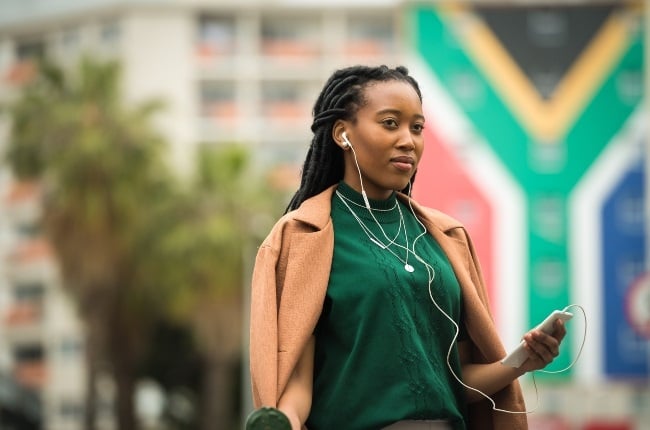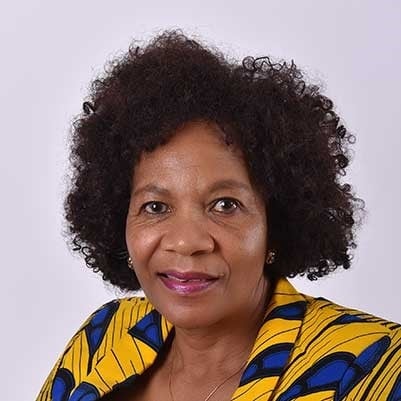
- Today, South Africa celebrates 29 years of freedom.
- However, the question still remains, are women in South Africa truly free?
- Some women say, for us to be truly free and empowered, we need to be educated.
"Give to us our freedom; Freedom from systems that do not include us; Freedom from structures that do not support us; Freedom from practices meant to enslave us; Freedom from rules that exist to deny us; Freedom from values that only destroy us; Freedom from people who refuse to affirm us; Freedom from guilt around us and within us; Freedom from fear and its power to deter us; Freedom for freeing women to be and Freedom for setting all people free."
As we celebrate the 29th anniversary of freedom from institutionalised racism and the birth of our democracy, the extract from this psalm, a prayer for freedom and a song of liberation by Miriam Therese Winter, a Medical Mission sister and American feminist, should prompt us to ask ourselves: Are we, as South African women, free?
SOUTH AFRICAN WOMEN AND FREEDOM
READ MORE | OPINION | What does Freedom Day mean if women are not free?
Are South African women truly free? Do they have freedom of thought and speech? Can they walk, talk or dress as they wish without being judged or trolled? Do they have the right to choose? In other words, do our country's human rights belong to women too? My answer is yes and no.
Yes, we are free and better off today, but still far from being equal with our fellow men.
We have made undeniable advances — from C-suite offices, boardrooms and courts of law to universities and Parliament and Cabinet, but disparities remain, especially in poor or rural areas and black communities.
The growing participation of women in politics and the decision-making process is a strong sign of weakening traditional and cultural practices.
Chapter 3 of the Women and Gender Equality Bill calls for public and private bodies to develop and implement plans to achieve 50% representation and meaningful participation of women in decision-making positions.
WOMEN AND SELF-ACTUALISATION
Indeed, freedom for women is about having the confidence to stand up for our rights and to be heard. Our freedom and being better off today can be attributed to a combination of various push and pull factors that motivate us to make the best use of opportunities that come our way, such as the right to live free from violence and discrimination, enjoy the highest attainable standard of living, to be educated, to own property, and to earn an equal wage.
While discrimination, violence and inequality stop women from speaking up about the decisions affecting their lives, different pull factors - such as independence, flexibility and control over our education and career, recognition, self-actualisation, and drive for personal growth - are associated with our aspirational leadership. There are more women in formal paid work and public office today than at any point in history.
In the private sector, women are on most boards of directors of large companies, but their numbers remains low compared to that of men.
After analysing 81 companies, Deloitte found that 31.8% of board seats are held by women in South Africa.
READ MORE | 28 GBV survivors are learning to farm in North West village thanks to POWA
PULL FACTORS
According to Parliament's current composition, the National Assembly comprises 46% women representatives, and the National Council of Provinces about 36%.
Therefore the pull factors for the freedom of women give rise to opportunities, while the push factors force us to exercise our rights in all political and economic and social activities.
It is a pity that gender inequality in education, health, and wages results in the poor development of women. Such gender inequality undermines the human capital of women by restricting their participation in education and economic activities, which have a detrimental effect on their economic condition.
Self-actualisation suffers when women face barriers in their professional advancement or ability to attain top positions in organisations. Despite similar employment rates, women are underrepresented in managerial positions as compared to their male counterparts.
UNEVEN PROGRESS IN TERMS OF GENDER EQUALITY
Any progress in terms of gender equality is uneven. Anyone who argues that women are taking over the world only need to look at statistics on employment, equal pay and political representation of men and women to see just how flawed this argument is.
Indeed, decent work - well-paying jobs with good benefits, good government gender equity policies and women’s human capital prominence - has been improving across our nation. Still, gender bias and patriarchy persist, and education has not proved to be the great equaliser.
Women who hold powerful positions often face a barrage of sexist behaviour from men.
An International Labour Organisation study of 83 countries, including our Rainbow Nation, found that women earn 10-30% less than men. The labour relations pressure group said, if present trends continued, it would be another 75 years before the principle of equal pay for work of equal value was achieved.
The power and attitude of men to decide what our country should look like, what counts and what doesn't, hasn't really been enormously disrupted since the dawn of democracy 29 years ago.
READ MORE | Time to roll up our collective sleeves to fight GBVF in the workplace
GENDER-BASED VIOLENCE AND FEMICIDE
There is a lot of work to be done before culture and policy can align with equality.
Then there is the scourge of gender-based violence and femicide (GBVF). While there is more awareness and condemnation of GBV than ever before, statistics still paint a grim picture.
Women and girls face violence, discrimination and injustice every day of their lives. From domestic violence to traditional harmful social practices and sexual exploitation, violence against women and girls is rife.
PATRIARCHY
Some argue that it is hard to challenge the long-cherished traditions of society, such as patriarchy. They say change in the status quo will take a long time, adding it is the history, culture and tradition which determines the status quo in a society, and it is also a fact that the history and tradition cannot be abandoned immediately and completely.
From 1956, when South African women marched on the Union Building to protest against the abusive pass laws, history has shown that women’s rights organisations and movements are a vital catalyst for gender equality and the realisation of women’s rights. From grassroots organising to advocacy and campaigning, women’s rights organisations are uniquely placed to mobilise and empower women to come together to know and claim their rights.
READ MORE | 'Patriarchal tendencies' taint judiciary's approach to gender-based violence - ConCourt Justice Madlanga
WOMEN ECONOMIC ASSEMBLY
To unlock private and public sector preferential procurement opportunities for women-owned businesses, in core areas of the economy, with an emphasis on the entire value chain to foster sustainable economic development, we launched the Women Economic Assembly (WECONA).
The women assembly is a multi-sectorial initiative. It derives its mandate from Pillar 5 of the National Strategic Plan, which focuses on GBVF. This Pillar of the NSP recognises the role of access to economic opportunities as a foundation for women to break free from abuse, exclusion and poverty. The public-private partnership will deepen its existing relations with women-owned business by unlocking economic opportunities through value chain participation.
Therefore, national women’s rights organisations such as WECONA have the knowledge and legitimacy to accelerate women’s freedom by presenting opportunities for businesses to derive benefits from greater equality for women as espoused in the UN Global Compact’s Women Empowerment Principles particularly Principle 5, calling for the implementation of enterprise development, supply chain and marketing practices that empower women.
For us to be truly free and empowered, we need to be educated. Education of females is of utmost importance.
True freedom will come when women have the freedom to just live our lives, do as we please, without being answerable to all and sundry, and without being judged at every point.
Futhi Mtoba is co-Founder of TEACH South Africa, a member of the International Women’s Forum of South Africa, convener and co-chair of the Women Economic Assembly.




 Publications
Publications
 Partners
Partners












